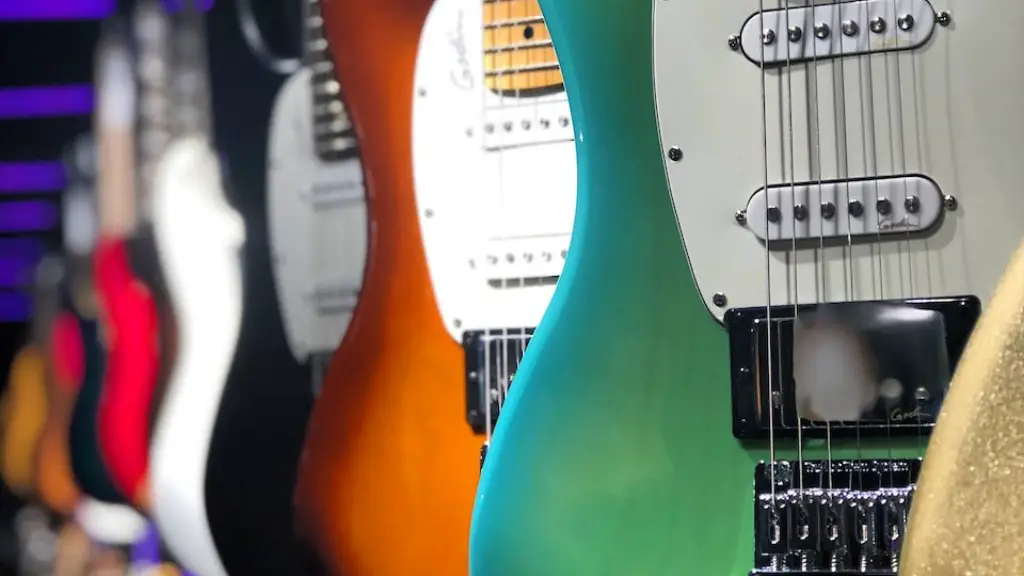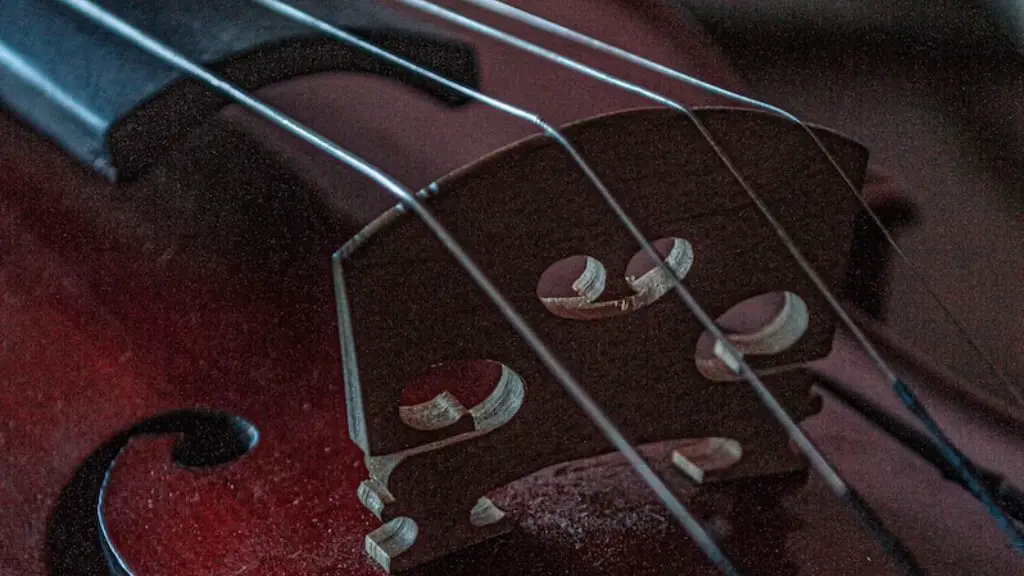A pickup on an electric guitar is a device that captures the sound created by the strings and converts it into an electrical signal. It is typically mounted on or near the bridge of the instrument and consists of a coil of wire wrapped around a magnet. The pickup is then connected to an amplifier which amplifies the signal and allows it to be heard through speakers or headphones.
The type of pickup used will depend on the type of music being played. Single-coil pickups are generally used for blues, jazz, and funk, while humbucker pickups are usually used for rock and metal. Humbuckers provide more output and a thicker sound than single-coil pickups. The position of the pickup also affects the tone, with bridge pickups providing more treble than neck pickups.
In addition to its role in capturing sound from the strings, a pickup can also be used to create special effects such as distortion, chorus, wah-wah, and flanger sounds. It can also be used to control parameters such as volume, gain, and tone.
Humbucker Pickup
A humbucker pickup is a type of electric guitar pickup that utilizes two coils, each wound in opposite directions, to cancel out the hum and interference commonly found in single-coil pickups. The result is a more powerful, focused sound that has a richer tone and often more sustain. Humbucker pickups are often used for heavier rock and metal styles of music, but they can also provide a great sound for jazz, blues, and other genres.
The two coils in the humbucker pickup work together to create a fuller, warmer sound than single-coil pickups. They also reduce feedback and noise from outside sources such as lightbulbs or amplifiers. Many guitars feature both single-coil and humbucker pickups to give players the ability to choose between different tonal options.
Humbucker pickups are an essential part of any guitarist’s toolbox. They provide players with greater control over their sound and allow them to explore new sonic possibilities. Whether you’re looking for the classic warmth of a vintage tone or the power of modern metal tones, chances are you’ll find what you need with a humbucker pickup.
Benefits of Different Types of Pickups on an Electric Guitar
Pickups are an essential part of the electric guitar, allowing the instrument to be heard through an external amplifier. Each type of pickup has its own unique sound and benefits. Humbucker pickups are known for their thick, warm tone and reduce interference from other electric signals. Single-coil pickups produce a brighter, punchier sound which is great for creating clear leads and solos. High output pickups create a high volume signal, perfect for aggressive genres such as metal or punk rock. Finally, there are acoustic-electric pickups which can capture both the strings’ vibration and acoustic sound simultaneously. Whichever type you choose, they all have their own special characteristics that help create your unique sound!
Ultimately, the type of pickup you choose will depend on your style and what kind of sound you’re looking to achieve. Choose wisely, experiment with different types and find out what works best for you!
Selecting the Right Pickup for Your Guitar
A pickup is a device that captures the sound of your electric guitar and transmits it as an electrical signal to your amp. It’s one of the most important elements in your guitar’s tone, so it’s important to choose the right one. There are a few different types of pickups available, including single-coil, humbucker, and piezo pickups. Single-coil pickups are classic and create bright tones with plenty of highs and lows. Humbuckers are great for heavy rock sounds, as they produce a warm, full-bodied sound. Piezo pickups generate a natural acoustic sound with lots of sustain and resonance.
When choosing a pickup for your guitar you should consider its tonal characteristics, construction materials, and output level. For example, if you’re looking for a bright tone then single-coils would be the best choice. If you want a fatter sound, then humbuckers would be more suitable. Additionally, pickups made from materials such as Alnico or ceramic can produce different tones even within the same type of pickup. Finally, pay attention to the output level since this will determine how your amp responds to the signal from your guitar.
Factors Affecting Pickup Tone
The tone of an electric guitar’s pickup is determined by several factors, including the type of pickup, its placement on the guitar, and its distance from the strings. Single-coil pickups have a bright and twangy sound, while humbucker pickups have a fuller and warmer tone. The pickups’ placement on the guitar also affects their sound; for instance, bridge pickups tend to be brighter than neck pickups. Additionally, the distance between the pickup and strings plays a role in tone production; when they are closer together, the signal is stronger and brighter. Finally, the gauge of strings used can also affect the tone; thicker strings will produce a heavier sound with more bass frequencies.
Overall, understanding how each of these factors affects pickup tone can help you create the exact sound you desire for your electric guitar. By experimenting with different combinations of pickups, placement, distance from strings, and string gauges you can create a unique tone that is perfect for your style of playing. Don’t be afraid to experiment until you get it just right.
Installation & Wiring of Electric Guitar Pickups
Installing pickups on an electric guitar is a great way to improve the sound and tone of your instrument. Pickups are small magnets that capture the sound of the strings and transmit it to the amplifier. The most commonly used pickup types are humbucking and single-coil pickups. Each type has its own distinct sound and characteristics, so it’s important to choose one that best suits your playing style. Installing a pickup is relatively simple, but it’s important to follow the instructions carefully for optimal performance and safety.
Wiring a pickup is also a fairly straightforward process, but you should always use caution when working with electricity. Generally speaking, there are two wires that need to be connected: one from the output jack (the source of power) and one from the pickup itself (the signal). Once these connections have been made, you can adjust the volume and tone knobs to get the desired sound. It’s also important to make sure all wiring is properly shielded with electrical tape or heat shrink tubing. With some patience, anyone can wire up an electric guitar pickup like a pro!
Common Problems with Electric Guitar Pickups
Electric guitar pickups are an essential part of the instrument, allowing it to be heard by amplifying the strings’ vibrations. However, they can occasionally have issues that prevent them from performing optimally. Common problems include poor or inconsistent sound quality, excessive noise, or a lack of volume. In some cases, the pickup may even stop working completely. The most common cause of these issues is a loose connection between the pickup and the guitar’s wiring. Improper installation or wiring from a previous repair may also be to blame. If you suspect a problem with your pickups, it’s important to consult with a qualified technician who can diagnose and fix the issue in order to get your guitar sounding great again.
Final Words
To conclude, a pickup on an electric guitar is an essential part of the instrument that helps capture sound and convert it into an electrical signal. It has a significant impact on the tone and volume of the instrument and is made up of various components such as magnets, coils and pole pieces. The type of pickup used can also influence the characteristics of the sound produced. Knowing what type of pickup to use for specific musical styles can help to get the desired tone. Finally, regular maintenance and cleaning should be done to ensure that the pickups are in good condition and working correctly.




